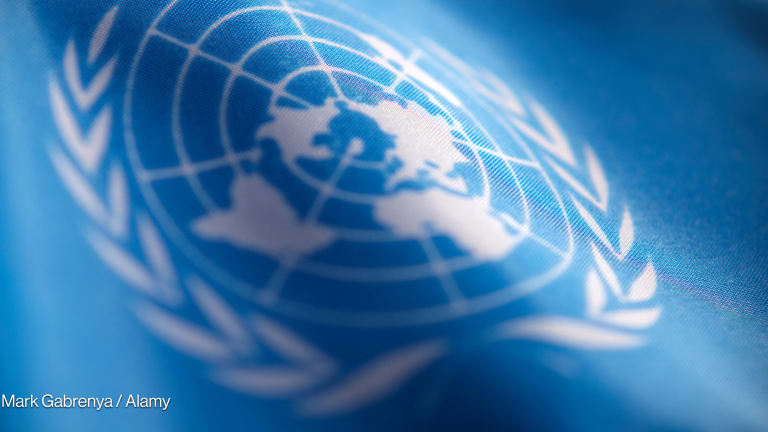
Kuwait bested itself on Wednesday by pledging $200 million more than last year in humanitarian aid for Syria at the second donor conference for the conflict-ridden country.
Close to 90 donor governments, U.N. agencies and nongovernmental organizations are attending the conference. But unlike the previous year, participants are now faced with a staggering $6.5 billion appeal for funds, over 300 percent more than the United Nations requested for the ongoing crisis at the last pledging conference just a year ago. Jens Laerke, spokesperson for the U.N. Office for Coordination of Humanitarian Affairs in Geneva, earlier told Devex they are optimistic that donors will be as generous as last year.
But even if donors get to meet the current requirement — or at least close to it — a foreign policy expert from a Washington, D.C.-based think tank is concerned over how long the current funding levels will last.
“The needs are clearly urgent and Syrians desperately need the support, but the appeal calls for half of the world’s humanitarian aid to go to Syria this year — any prospects that less will be needed next year or the year after?” Elizabeth Ferris, senior fellow on foreign policy and co-director of the LSE Project on Internal Displacement at the Brookings Institution, told Devex.
The $6.5 billion request for Syria covers almost half of the U.N.’s total humanitarian appeal for 2014 — but there’s no guarantee this requirement will not balloon in the coming months, as was the case last year, when the United Nations revised mid-year its request to $4.4 billion.
Ferris is concerned that the huge funding focus on Syria could already be having an impact on other humanitarian crises, such as the current crises in the Central African Republic and South Sudan, or other protracted situations as in the Democratic Republic of Congo or Sudan, which are by comparison getting less attention — at least in terms of funding.
“My sense is that the humanitarian system is really stretched by these mega-crises (not just money but experienced staff),” she argued. “Responding to the latest crises doesn’t leave much energy to address small crises before they become big ones.”
Clearly, the answer in ending the humanitarian tragedy brought about by the Syrian crisis is political. But until world leaders agree on a unified course of action, there’s nothing else left to do for the humanitarian community but wait and respond as best as they can.
Read more development aid news online, and subscribe to The Development Newswire to receive top international development headlines from the world’s leading donors, news sources and opinion leaders — emailed to you FREE every business day.
See more:








